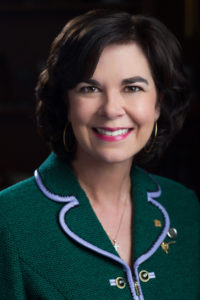By Dr. Tara Hulsey
Health care is a challenging and complex issue facing our nation. Meeting the demand for highly skilled, highly trained nurses is one of the most pressing challenges we face. Many nursing schools around the U.S. lack the necessary resources, including clinical space and faculty, to address this challenge. As a matter of fact, for some colleges and universities, the wait to enroll in a nursing program could be as long as five years.
In 2010, the Institute of Medicine issued its Future of Nursing Report to address a number of challenges—and opportunities—facing the nursing profession. As a result, one of the tasks the industry has been given is to increase the number of nurses who hold a bachelor’s degree in nursing to 80 percent by the year 2020. This is a huge undertaking.
So, what do we do to address this problem? We look for opportunities that make sense.

Photo courtesy of West Virginia University.
One way the West Virginia University (WVU) School of Nursing is helping address this call to action is to extend our in-state tuition, regardless of residency, to students enrolled in our online registered nurse to bachelor of science in nursing program. These nurses have already been trained in a clinical setting and passed their national licensure exams, so we can offer additional academic opportunities and competencies completely online to improve patient care while providing the flexibility nurses need to take the next step in advancing their careers.
The Future of Nursing Report also noted the need to identify and educate advanced practice nurses who provide care to those who need it while also assuming much-needed faculty roles. By the year 2020, nursing schools have been asked to double the number of nurses who have doctoral degrees. This is absolutely critical in providing care to West Virginians, particularly those living in our rural communities where access to care is limited.
Without additional clinical sites and faculty, growing our traditional undergraduate nursing program is challenging. It’s a daunting task, but we are committed to pursuing unique and innovative opportunities that make sense for our program and its students while also ensuring they are ready to take on the critical role they play in the future of health care.
 About the Author
About the Author
Tara Hulsey, RN, PHD, CNE, FANN, is the dean of the WVU School of Nursing and an E. Jane Martin Endowed Professor. She also serves as president of both the West Virginia Board of Examiners for Registered Professional Nurses and the nursing council for the Southern Regional Education Board.



